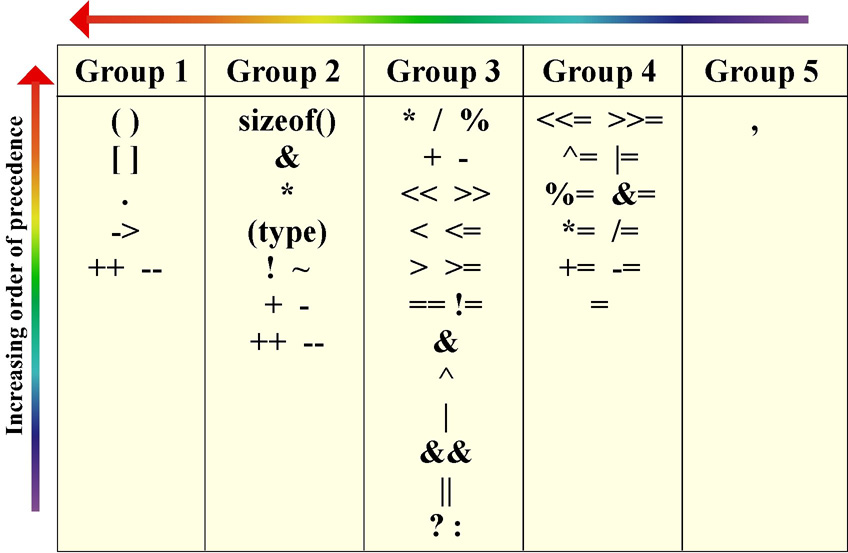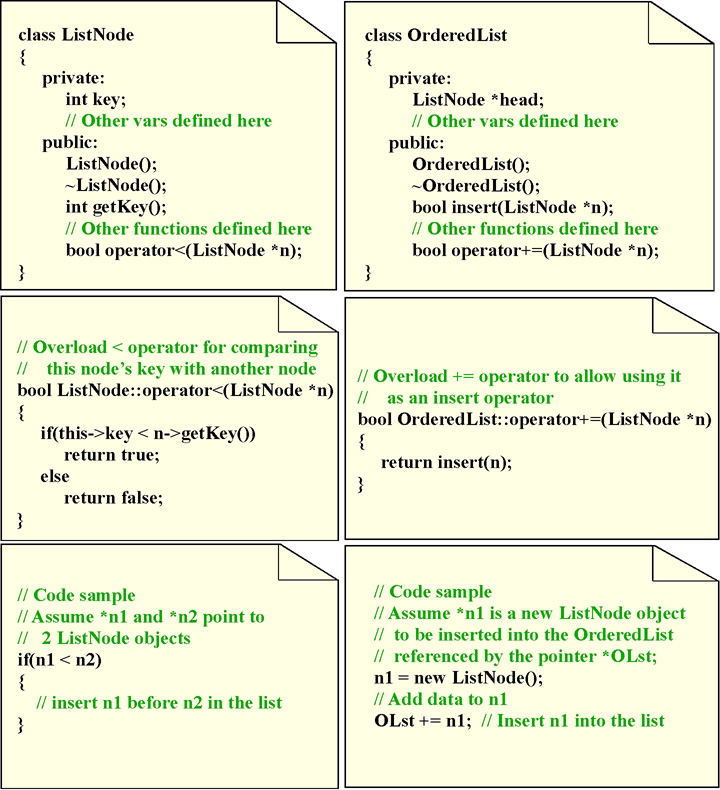

enum Number{ZERO, ONE, TWO, THREE, FOUR, FIVE, TEN=10, ELEVEN};
The actual values assigned to each of the items in the braces starts with zero for
the first and increments sequentially. A specific value can be assigned to one of
the "values" as shown. When this is done the subsequent items are given values
sequentially from that value. Thus the defined values for the enum Number will be
ZERO=0, ONE=1, TWO=2, THREE=3, FOUR=4, FIVE=5, TEN=10, and ELEVEN=11.Number num = ZERO;Now the variable num can be used in code. Note: that it can only be assigned one of the values defined for it.
if(num == ZERO) NUM = ONE;
switch(num)
{
case ZERO : // Do something
break;
case ONE : // Do something
break;
case TWO : // Do something
break;
case THREE : // Do something
break;
case FOUR : // Do something
break;
}
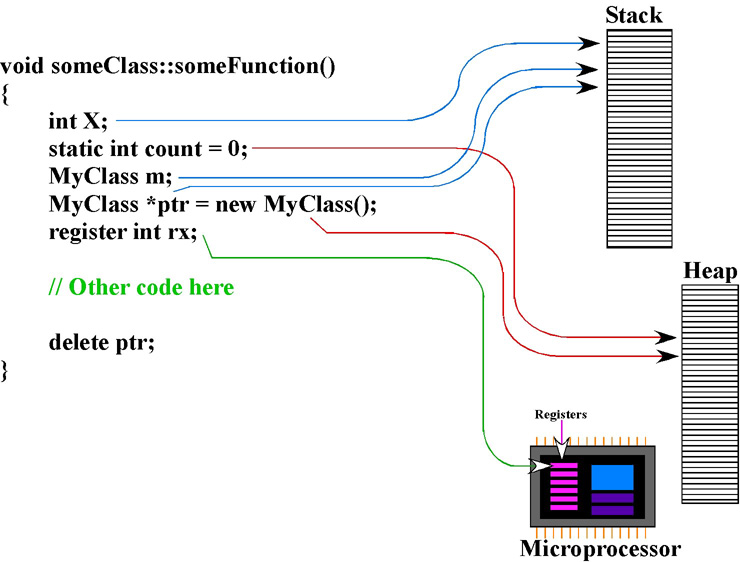
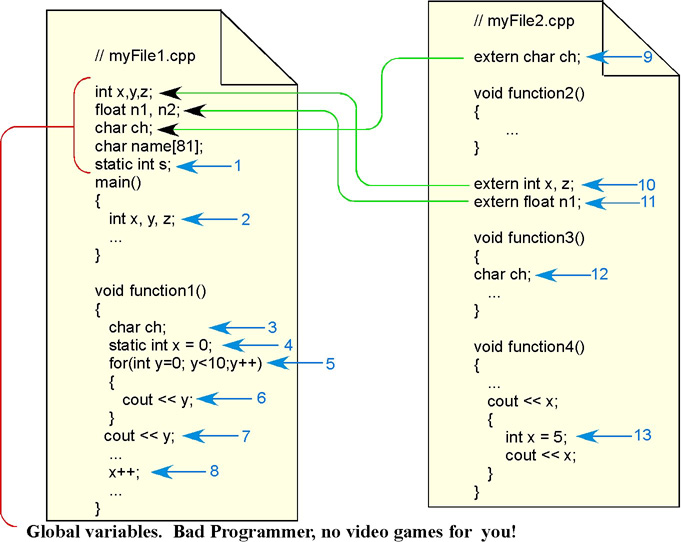
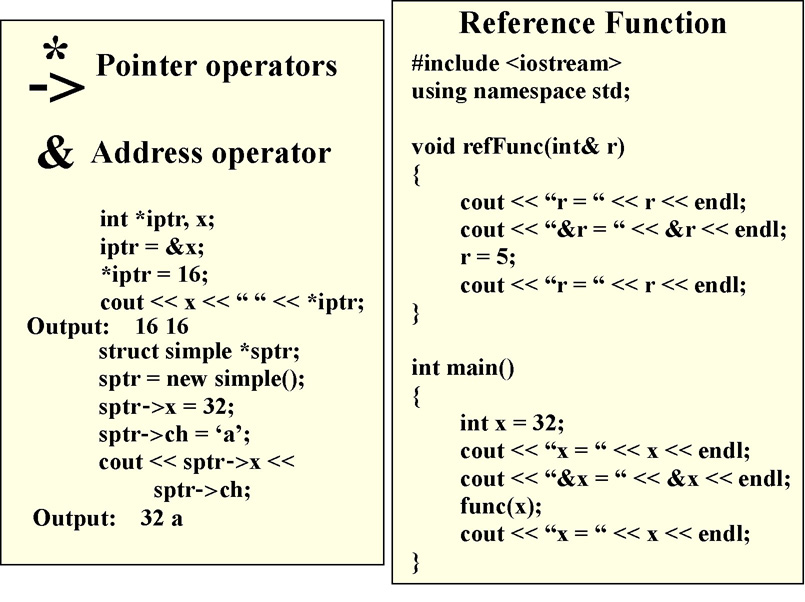
int iVar; // Create an int variable
int& iRef = iVar; // Create a referencd and set it to iVar
There are, however, some rules you have to follow in creating reference variables.
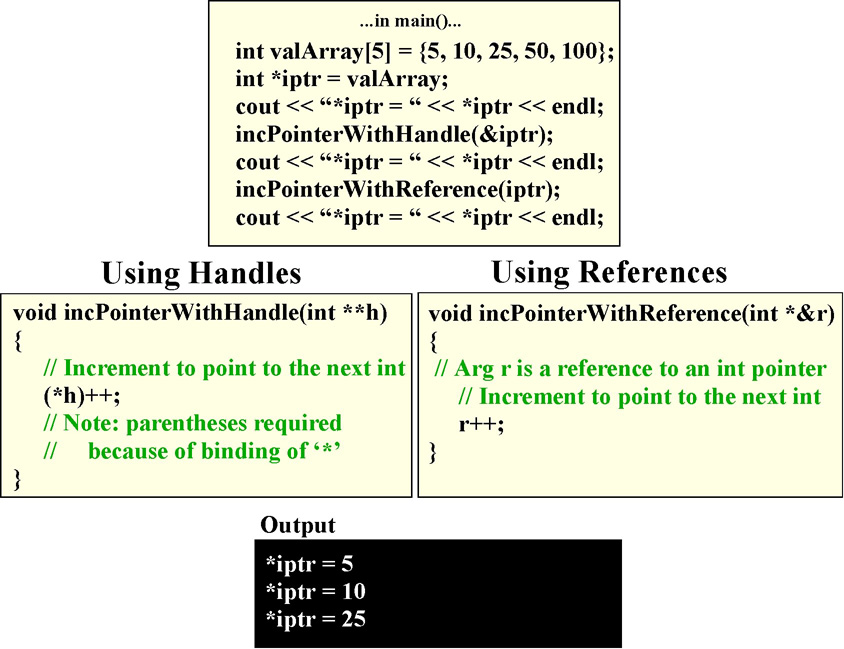

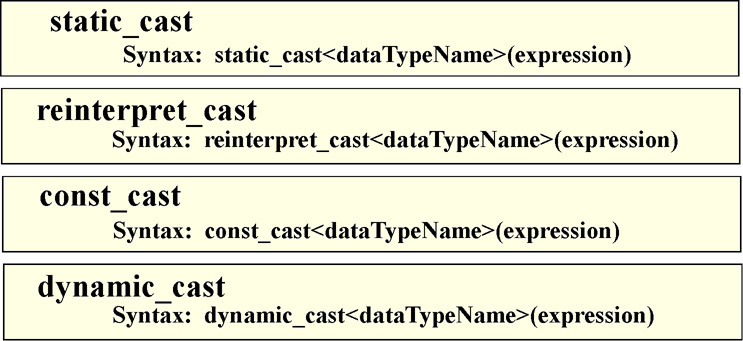
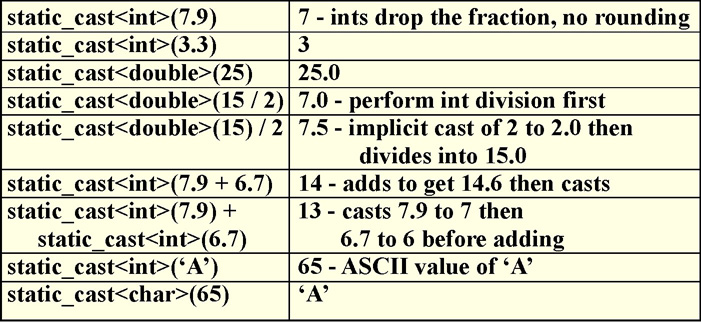
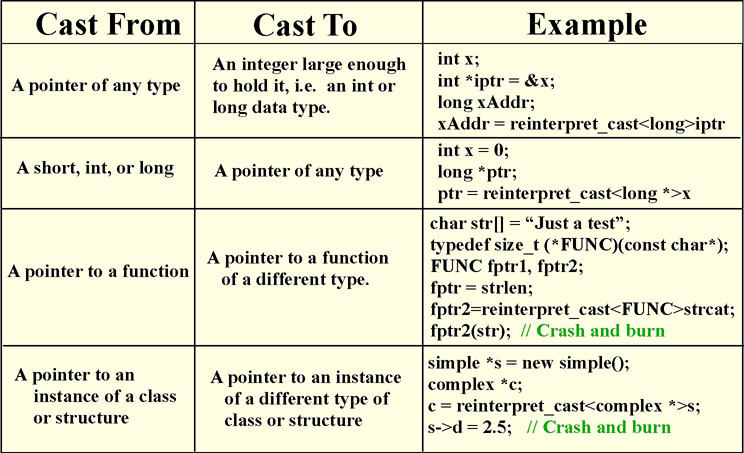
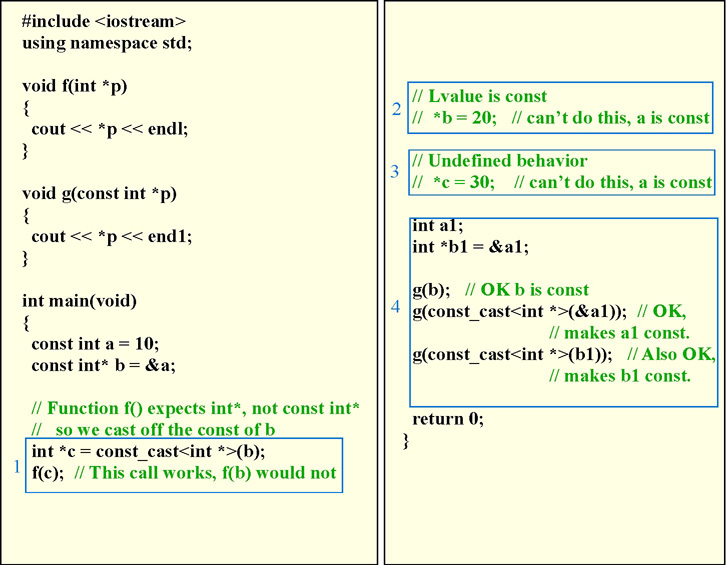

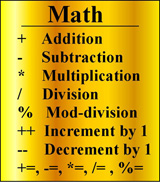
|
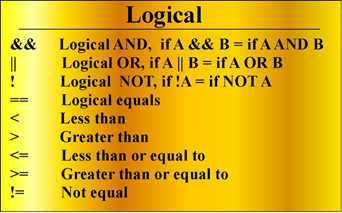
|
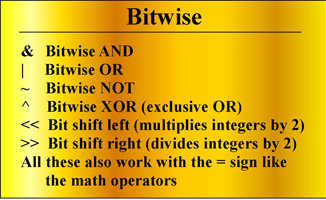
|
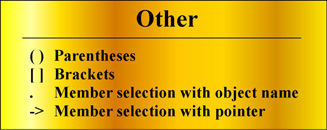
|
